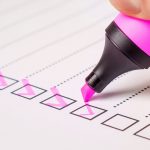Section 1: Information on Autism Spectrum Disorder (ASD)
2 What is Autism Spectrum Disorder (ASD)?
What are the symptoms of Autism Spectrum Disorder (ASD)?
 Typically, concerns about core features are present before 36 months (three years of age) in those with ASD. The individual may not be diagnosed by 3 years of age, but early symptoms or signs may have been present before then (though presence of symptoms prior to age three is no longer a requirement for classification). Early development of individuals with ASD is often atypical. For some, delays and unusual behaviors are noted early, in infancy or as a toddler. For others, early development appears on track until around 18 -24 months or later when potential regression, loss of skill, or limited progression or loss of skills occurs (usually in language or social skills).
Typically, concerns about core features are present before 36 months (three years of age) in those with ASD. The individual may not be diagnosed by 3 years of age, but early symptoms or signs may have been present before then (though presence of symptoms prior to age three is no longer a requirement for classification). Early development of individuals with ASD is often atypical. For some, delays and unusual behaviors are noted early, in infancy or as a toddler. For others, early development appears on track until around 18 -24 months or later when potential regression, loss of skill, or limited progression or loss of skills occurs (usually in language or social skills).
While concerns are typically present during the early developmental period, they may not be recognized until social demands and expectations exceed the individual’s skills and capacities.
Core features of ASD:
Challenges in Social Communication and Social Interaction
 Communication challenges in ASD will vary, as some individuals might be non-verbal and others might have a great deal of language but have challenges in using language to communicate effectively.
Communication challenges in ASD will vary, as some individuals might be non-verbal and others might have a great deal of language but have challenges in using language to communicate effectively.
Social challenges present in varying degrees. One of the difficulties might include trouble using nonverbal behaviors like eye contact, facial expression, gestures, and body posture. In addition, developing relationships can be challenging for individuals with ASD, as they often have trouble understanding social cues and rules, and may misinterpret or not fully understand someone else’s nonverbal cues. This can make social situations uncomfortable, anxiety provoking, and hard to manage. Challenges related to social communication and social interaction will be different for each individual and may include:
- Delays in the development of language, not saying single words or 2-word phrases by 16 months or 2 years of age respectively
- Absence of language or never developing words
- Difficulty starting or maintaining conversations
- Holding one-sided conversations or only talking about their interests, thus providing little back and forth conversation with another person
- Presence of echolalia where the individual repeats words or phrases without meaning or in the wrong context. The words or phrases were likely heard elsewhere, such as when an individual repeats lines from a movie
- Mixing up pronouns, like using their own name or “you” instead of “I”. For example, a child who wants a cookie may say, “Mike wants cookie” or “You want cookie,” when they should be saying “I want cookie”.
- Avoiding eye contact
- Lack of gestures such as pointing or waving “bye bye” when young
- Lack of gestures such as head shakes/nods or other gestures typically paired with words
- Limited range of facial expressions or having a blank or flat affect most of the time
- Lack of shared interest with others or lack of willingness to engage in non-preferred activities
- Limited sharing of toys, materials, foods, and other items with others
- Lack of pretend or make-believe play
- Preference for playing alone or avoiding interaction with others
- Focusing on getting a desired object or getting help rather than just being with another person
- Trouble understanding another’s perspectives
- Difficulties with recognizing social rules and personal space (i.e. standing too close to others when talking)
- Difficulty with nonverbal language or cues
Restricted repetitive behavior, interests, and activities
 Some individuals with ASD demonstrate unusual interests and repetitive behaviors. Individuals may ruminate about certain objects or topics to the point that it interferes with socializing or with other activities. Some of these individuals might become intensely focused on items and concepts typical for those of the same age like Thomas the Train, letters and numbers, dinosaurs, or the weather. Alternatively, they may become focused on unusual things like floor vents, strings, fire hydrants, or street signs. Individuals with ASD also tend to seek out sameness and might have problems when typical routines are changed or if there are minor changes in their environment. Repetitive motor movements or repetitive use of objects might also be observed. In addition, individuals with ASD may be hypo or hypersensitive to certain sensory input meaning such individuals may be over or under reactive to sensory experiences such as the way things feel, smell, taste, sound, or look. They may seek out certain sensory experiences or seek to withdrawal from them. Some examples of common challenges individuals with ASD may have resulting from repetitive restricted behavior, interests, or activities, and sensory sensitivities may include:
Some individuals with ASD demonstrate unusual interests and repetitive behaviors. Individuals may ruminate about certain objects or topics to the point that it interferes with socializing or with other activities. Some of these individuals might become intensely focused on items and concepts typical for those of the same age like Thomas the Train, letters and numbers, dinosaurs, or the weather. Alternatively, they may become focused on unusual things like floor vents, strings, fire hydrants, or street signs. Individuals with ASD also tend to seek out sameness and might have problems when typical routines are changed or if there are minor changes in their environment. Repetitive motor movements or repetitive use of objects might also be observed. In addition, individuals with ASD may be hypo or hypersensitive to certain sensory input meaning such individuals may be over or under reactive to sensory experiences such as the way things feel, smell, taste, sound, or look. They may seek out certain sensory experiences or seek to withdrawal from them. Some examples of common challenges individuals with ASD may have resulting from repetitive restricted behavior, interests, or activities, and sensory sensitivities may include:
- Becoming intensely focused with certain topics, themes, or objects
- Getting upset with minor changes in routines (e.g., changes made in seating, or if the bus takes them home on a different route)
- Engaging in unusual motor movements like flicking their fingers, flapping their arms, toe walking, holding their fingers in odd postures, unusual facial grimacing, spinning self in circles, or even self-injurious behavior
- Engaging in repetitive play with toys or objects (e.g., flicking string, lining up cars, rewinding video to watch the same segment over and over, turning lights on and off repeatedly)
- Becoming attached to objects
- Covering their ears in response to certain sounds or in noisy situations
- Smell toys or objects
- Have trouble wearing certain fabrics or touching certain textures
- Lick or mouth items in their environment including both edible and inedible objects outside of the typical developmental range for mouthing (e.g., behaviors typically seen in infants when chronologically older)
Additional challenges/symptoms sometimes observed with ASD
Individuals with ASD may also demonstrate symptoms that are not formally part of the diagnostic criteria, but may significantly interfere with learning and interactions including the following:
- Eating a limited variety of foods, engaging in rituals related to eating (e.g. time, placement, order)
- Gastrointestinal disorders (e.g. constipation, celiac disease)
- Difficulty falling asleep, staying asleep, or waking up
- Distractibility from things they are expected to attend to (e.g. schoolwork, rules, cues)
- Irritability and behavior resulting from intense anxiety and frustration due to social expectations
- Engagement in challenging or self-injurious behaviors (e.g., throwing tantrums, hitting themselves, banging their head) with the possibility of such behaviors occurring more frequently in certain situations or appearing to occur without an apparent reason
- Pica or eating things that are not food (i.e., eating nonfood items like rocks, dirt, and soap)
How is autism spectrum disorder (ASD) identified?
For some individuals who develop ASD, the symptoms started during their infancy. Studies have shown that some individuals can be diagnosed as early as 12 months, but for others the impact or appearance of symptoms may not be apparent until later when the challenges of social demands exceed the social skills and capacities of the individual.
Making a diagnosis of ASD can be difficult as there are no medical tests, such as a blood test or MRI scan that would determine the presence of ASD. As a result, diagnosis of ASD occurs through observation of behavior and consideration of parent, caregiver, or individual concerns. Physicians or licensed psychologists will typically conduct assessments that look at the child’s social skills, social communication and history, cognitive ability (IQ), play skills, and adaptive or everyday skills like feeding and dressing in order to determine if the characteristics of ASD are present. In addition, interviews with the parent to get information about the child’s developmental, social, family, and behavioral histories are important.
Records from other evaluations, disciplines and settings are also considered. Several early indicators of ASD have emerged through advancements in research to help with early identification and, by age 2, diagnoses by experienced professionals are generally considered reliable. Despite this fact, some individuals will not be diagnosed until they are adolescents and adults, potentially limiting their exposure to early intervention. Even as an adult, however, interventions can be successful in training skills and improving quality of life outcomes for the individual and family. (CDC, 2020; Hyman, Levey, & Myers, 2020; Lord, Risi, DiLavore, Shulman, Thurm, & Pickles, 2006)
Unique abilities often noted with individuals with ASD:
Individuals with ASD may display unusual skills or abilities. Sometimes, these unique skills are tied to areas of specific interest for the individual or specific motor skills. At other times, such unique skills may be considered high level and often out of sync or incongruent with the level of skill demonstrated on skills considered foundational or easier than those they excel in (e.g., ability to read fluently despite impaired reading comprehension or poor understanding of the material read; ability to do algebra despite challenges with even basic number sense). Particular areas of strength and ability for individuals with ASD often include:
- Visual processing skills
- Systematic information processing – ability to understand concrete, rules, and sequences
- Long-term memory skills – remembering dates, events, or names for many years
- Logic and precise technical abilities – math or computers
- Artistic skills – creative or musical abilities
- Decoding skills – decode written language even prior to full comprehension
- Large vocabulary – sometimes prior to full understanding of meaning
- Honest and trustworthy – can depend upon to tell about, confess, or detail actions
- Dependability – consistent, reliable, low absenteeism, follow expectations once learned
- Extreme focus – ability to attend to activities for extended amounts of time and focus to fine details if an area of interest; disinterest in office politics; bodes well for efficiency and precision
- Excellent navigation skills – good sense of direction, learn easily
